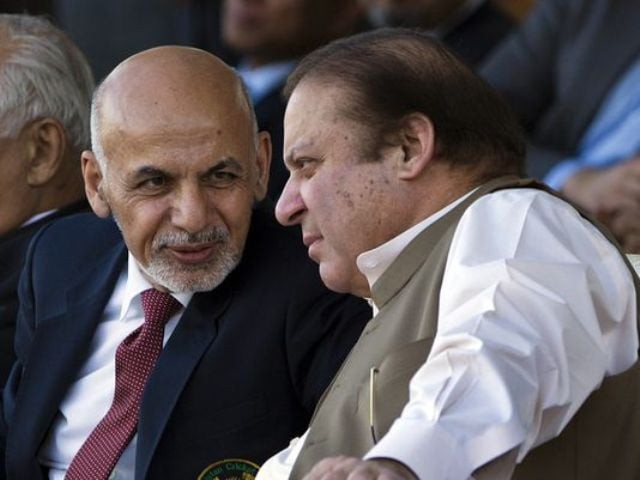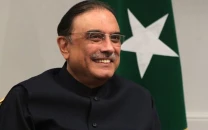Pak-Afghan border management talks open today
Nawaz condemns Kabul atrocity in phone call to Ghani

Afghan President Ashraf Ghani with Prime Minister Nawaz Sharif. PHOTO: FILE
The move came on the heels of a border flare- up last month over the installation of a security gate.
The Pakistani side will be led by the director general military operations and include representatives of important ministries and security agencies.
“There will be two meetings on Tuesday. One is a tripartite meeting of Afghanistan, Pakistan and the US. This is mostly on military coordination,” a source told The Express Tribune.
“The second meeting relates to bilateral issues and based on the decision of the presidents of the two countries in Tashkent last month,” he said.
“Each side will be led by military personnel but members from the foreign affairs, interior ministry and intelligence agencies are also included in the delegation,” he added.
In Kabul, the Afghan defence ministry also confirmed that bilateral and trilateral meetings will be held on Tuesday. Spokesman Daulat Waziri told media representatives that the meetings would discuss ‘issues on the Durand Line’.
This is the maiden meeting of the Pakistan-Afghanistan joint technical working group that will discuss “border management and related security issues” and swap ideas.
This is also the first interaction of senior officials of the two countries after Pakistan introduced a new mechanism whereby Afghans are forced to carry legal documents to enter Pakistan. Earlier, a steady stream of Afghans would trickle into Pakistan daily without the need of passports or valid visas.
Afghanistan had expressed reservations over the new mechanism. Pakistan insists the move will discourage infiltration by militants and stop any unlawful cross-border movement.
Pakistan Embassy’s spokesman in Kabul, Akhtar Munir, says the embassy and four consulates would issue around 2,000 visas daily against the daily turnover of 18,000 to 25,000 Afghans.
“We would not know how many of those elements crossing the border would create problems in both the countries, as there had been no mechanism to check illegal movement,” Munir told The Express Tribune.
For Pakistan border management is a must, as Operation Zarb-e-Azb has entered in its final and crucial phase, and the government is in no mood to compromise on the achievements made so far in the battleground by breaking the control at the border loose, according to officials.
Pakistan and Afghanistan have around 2,600 kilometres long border that is mostly porous, and both the countries will have to agree on a mechanism that could address each other’s concerns.
Security officials say the new mechanism it will be put in place in phases and will be extended to other crossings — including Chaman in Balochistan.
Meanwhile, Prime Minister Nawaz Sharif called Afghan President Ashraf Ghani and assured him of Pakistan’s support following the deadly bomb blast in Kabul on Saturday.
He strongly condemned the brutal act of terrorism and extended deepest sympathies to all the families who lost their loved ones.
Branding terrorism as a common enemy of the two countries, Nawaz said Pakistan remains committed to cooperating with Afghanistan in fighting terrorism. Ghani thanked the PM for expressing solidarity with the government and people of Afghanistan at this critical moment.
Published in The Express Tribune, July 26th, 2016.



















COMMENTS
Comments are moderated and generally will be posted if they are on-topic and not abusive.
For more information, please see our Comments FAQ